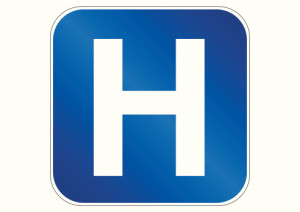Reports of Medication and Surgery Errors Increase in Connecticut Hospitals
 A disturbing state report indicates that adverse events in Connecticut hospitals have doubled since 2012, with major increases in the rate of medication errors, patient falls and perforations during surgeries. This rise in hospital malpractice is largely attributed to new reporting on pressure ulcers – a category that was not included in health care adverse incidents until 2013.
A disturbing state report indicates that adverse events in Connecticut hospitals have doubled since 2012, with major increases in the rate of medication errors, patient falls and perforations during surgeries. This rise in hospital malpractice is largely attributed to new reporting on pressure ulcers – a category that was not included in health care adverse incidents until 2013.
It comes as no surprise that the rates of surgical and medication mistakes were highest in Connecticut’s largest hospitals. Yale-New Haven Hospital reported 94 serious adverse events; Hartford Hospital logged a total of 68, and St. Francis Hospital and Medical Center was the site of 48 incidents involving falls and surgical errors.
New Milford Hospital took the honors for the highest adverse event rate – based on patient volume, with 78.6 errors per 100,000 patient days. Danbury Hospital and Putnam’s Day Kimball Healthcare took second and third place respectively, with 62.8 and 40.8 adverse events.
Rates of hospital malpractice in Connecticut rising
So-called “never events,” including foreign objects being left behind during surgery, more than doubled in one year according to the report, increasing from 12 to 25 over a 12 month period.
Other patients suffered serious health complications after having organs perforated during operations. The rate of surgical perforations jumped from 55 to 79 in Connecticut hospitals. The state report says that these figures are “the highest levels since the (data reporting) was adopted in mid-2004.”
Items like clamps, sponges and drain tips were some of the most common tools left in patient bodies following surgeries. And nearly 50 percent of surgical perforations that severely harmed patients or caused their death happened during routine colonoscopies, hernia repairs and endoscopies.
Mistakes with prescription medications also doubled, and reports arising from wrong-site surgeries and patient falls show increases as well since 2012.
Four patients at Hartford Hospital suffered injury after having a foreign object left behind after surgery, while three patients at Yale-New Haven had surgery performed on the wrong body part. Danbury Hospital logged five incidents of surgical perforations and five patient falls. Bridgeport Hospital reported two life-threatening drug errors and more than five patient falls.
The state hospital report, which was issued by the state Department of Public Health, may trigger concerns about overall patient safety in Connecticut facilities. However, since the adverse events were self-reported, the DPH has not drawn definitive conclusions about serious risks posed to residents.
Initiatives undertaken to reduce adverse events
Acute-care facilities in Connecticut have embarked on multiple strategies to enhance patient safety, enforcing rigorous procedures to help avert potential medication mistakes, pressure ulcers and wrong-site surgeries.
The Connecticut Hospital Association’s chief quality officer and vice president, Dr. Mary Cooper claims that state hospitals have trained over 10,000 doctors and personnel in “high reliability safety behaviors,” as part of a statewide effort, which has gained national praise.
Hospitals with fewer than seven adverse events per 100,000 patient days included Hartford’s Children’s Medical Center, Charlotte Hungerford in Torrington, and Norwich’s William W. Backus Hospital.
Other facilities like Bridgeport and Greenwich hospitals embrace a “culture of safety” that inspires staff to report all unanticipated adverse events and encourages follow-up improvements to prevent future incidents.
- Courant.com, Hospital Reports Of Surgical, Medication Errors Climb http://www.courant.com/health/hc-hospital-adverse-events-20150106-story.html
- Mayo Clinic, Medication errors: Cut your risk with these tips http://www.mayoclinic.org/healthy-living/consumer-health/in-depth/medication-errors/art-20048035

 Resources
Resources
 Resources
Resources
